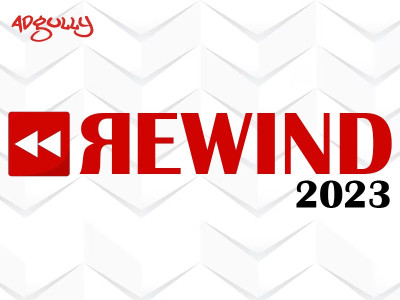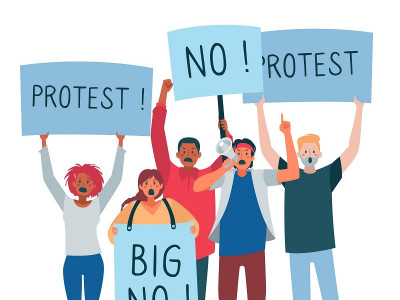“Corporates are banking on a more holistic approach to reputation managementâ€
As part of our series on ‘PR Conversation’, we at Adgully are speaking to some of the industry leaders from both PR agencies and the corporate communications world about how PR as a business and communication tool has evolved and grown over the years. In the last 10 years, PR has taken a different dimension, especially after the entry of social media in a big way. While the PR business has grown, some of the challenges that the industry is facing have also multiplied as clients are becoming more demanding and are expecting their consultants to be on their toes to manage their brand reputation, as news today travels fast and clients are expecting quick response and action in case of a crisis situation.
In conversation with Adgully, Sukanya Chakraborty, Head – Corporate Communications & CSR, VFS Global, speaks at length about the shifts in the communications industry, how companies are adopting an empathy-first approach in the pandemic times, the growing power of digital platforms and much more.
How has PR evolved in the last 10 years? Going forward how will the Industry shape up as the dynamics of the PR will keep changing with digital transformation?
The operating environment for communication & PR professionals has changed in the last decade. There have been significant changes in the media landscape; where traditional print media was once king, social and digital platforms have become consumers’ top choice for information consumption, facilitated by the rapid advancement of technology and mobile-first consumer behaviour. Whereas top-down communication pushed out by corporates meant that they were in control of pace and content, today’s 24/7 news-cycle and the decentralisation of content creation means that communication professionals must monitor news in real time and respond quickly to potential crisis, no matter big or small. This shift in the operating environment has added layers of complexity to the communicator’s role.
The online medium has expanded the ability of audiences to access everything in real time. The upside is, this also gives communicators a much larger number of channels with which to engage consumers and develop a brand image that suits the sensibilities of multiple consumer cohorts, across platforms.
Another shift for communicators has been the accuracy and detail with which they can now measure their campaign results. Whether it is an article in a traditional publication or a social media campaign – the sheer amount of data available to measure the reach, readership, website traffic, and engagement, gives the ability to develop and execute strategies more effectively with a near-precise RoI. Going forward, we will only experience increased powers of the digital medium, its reach and insights that will push brands to communicate in a customizable yet integrated manner. The future of communications depends on how we manage to be dynamic enough to engage with the consumer how, when and where they want it.
Big corporates and MNCS are very particular in preserving and maintaining their reputation. In today’s world where pandemic has disrupted the world how are companies managing their reputation?
Given the completely out-of-ordinary times that we have had since March 2020, the way brands interact with their audiences has undergone a significant remodelling, forcing companies to take a more proactive, and holistic view (involving all aspects of business) to crisis communication. Irrespective of the industry, business function and sector – companies have had to adapt to a new playbook of reputation management, dictated by the new sensitivities of the world we live in.
One of the most significant shifts has been companies adopting an empathy-first approach. Knowing the panic that ensued right after the first wave that hit early last year, companies are ensuring that they understand the consumers’ anxiety and build their optimism and confidence towards the future. Sensitising stakeholders about impending events and arming them with the right information that helps make right decisions, goes a long way in building confidence in the organisation, and keeping the brand at the top of consumers’ minds as a trustworthy name.
Corporates are also banking on a more holistic approach to reputation management to ensure that the brand can reach its stakeholders across demographics and geographies through a centralised identity. Brand communications are now putting the stakeholder needs and relationships at the front and center of their focus – with low priority to new launches or business announcements. A company’s reputation reflected in the voices and advocacy of their consumers is what will build and sustain a stronger, reliable and more empathetic brand image, irrespective of the crisis at hand.
Managing crisis communication is a challenge and it comes with years of experience. Can you share one or two interesting examples where a reputed organisation successfully managed the crisis?
Most companies are no stranger to crisis-management, but the COVID-19 crisis is one that none of us were ever prepared for. Whatever crisis playbooks existed before 2020, looked irrelevant during the pandemic. All through the past year, brands have adapted their crisis management and communications strategies to accommodate the unpredictable circumstances.
There are enough examples of how brands engaged with their audience segments and the world-at-large during the Covid crisis. Barring a few ill-timed communications, most brands changed their tone and narrative to suit the times and did it well by not force-fitting themselves. The connect had to be purposeful. Many known brands had socially relevant messages out there. The clear communication plan and empathetic approach spoke volumes about the priorities of such companies making them in the list of socially responsible brands. Some that come to my mind are Nike, McDonalds, Ikea, Ford, Amazon, Swiggy, Ola, Amul, Fevicol, among others.
For us, as the travel eco-system grappled with drastic changes, slowdowns and even shutdowns, it became more important than ever to keep consumers, employees, partners, and other stakeholders apprised of all developments. This, however, needed to be done in a way that was both transparent and reassuring- the kind that could help reinstate the faith to #TravelAgain. The first step of communication was to inform and educate customers about the suspension or resuming of visa services, and how operations would progress during the COVID-19 induced lockdown.
Given VFS Global’s network across 140+ countries and serving 60+ governments, this was no mean task, given the speed at which information was required to be communicated for each stakeholder in various countries. Empathy-Engage-Educate became our communication approach. From #Covid19FaqSeries that had all probable questions related to visa applications answered, to #SafetyFirst highlighting all the health & hygiene measures in our centres, #SafeTravels that spoke about measures people can follow during trips, #DoNotFallForFraud that advised people to beware of scamsters and #TravelAgain that was aimed to keep the spirit of wanderlust alive even though it was time to #FlattentheCurve and #StayHome. All these were campaigns run throughout the length of the past year, and still continue, as we engage proactively with audiences.
Digital has become a powerful communication tool and managing online reputation is a challenge as the medium is dynamic as news travels fast. How is your company geared to manage the online reputation to project a positive image and strengthen the brand equity?
The power of digital platforms has been only increasing and brands cannot ignore its importance in the communication strategy. For us at VFS Global, being the world’s largest outsourcing partner for governments, we need to have a clear approach to increase brand affinity, promote thought leadership and boost employee engagement adopting a well-defined content and channel specific strategy. From educating consumers about the visa application process, keeping them aware about constantly changing visa and travel advisories, sensitising them on data privacy, building awareness on our optional services to enhance the application submission experience, weaving in employee stories, thanking happy customers, besides of course, having a dedicated team to manage customer issues, we ensure to keep the information up-to-date and relevant.
During pandemic times, when traditional PR took a backseat, social media was an important platform for us to reach out to our audiences. Our social media handles were active 24X7, becoming the one-stop-shop for people looking out for credible information. From the lockdown to the restart period, we saw an unprecedented rise on 350% in customer interaction volume as against the pre-COVID 19 period. Our global follower base doubled in 2020 and our efforts of providing real-time information helped us increase the level of trust among our audiences.
We all speak about external communication, but equally important is internal communication. What process and framework do you follow to stay engaged with your internal stakeholders and employees to manage the reputation of your company on an ongoing basis?
Companies today have realised the importance and value of a structured approach to internal communications. Just as we do with our external audiences, it was equally important for us to keep our employees abreast of all company and industry-related developments.
At VFS Global, we believe internal communication is a critical element of creating a highly successful and engaged organisation. We believe employees are the ambassadors and important stakeholders. Today, with nearly everyone having a social media presence, every single employee becomes an ambassador of sorts of the company. Employees have friends, relatives, or followers with whom they constantly communicateand, in this case, they become brand representatives. The more aware and clear the employees are of the brand values, the more likely they are to demonstrate it in their actions while engaging with the external stakeholders, especially the customers.
Our overarching objectives of communicating effectively with our employees aims to:
- Promote employee inclusion, engagement and empowerment by ensuring right information is available to the right people at the right time
- Strengthen the culture by enhancing awareness and understanding of organisational priorities
- Build transparency within the organization by improved leadership engagement.
In today’s complex world, cross-cultural communication at a global level is a challenge. One has to manage different geographies in different languages. So, what are the challenges you face here and what is the process you follow to have communication that is meaningful and sensitive across cultures?
At VFS Global, we work across over 140 countries. This means we have a diverse workforce of over 118 nationalities, making it extremely important for us to keep them engaged with their global counterparts for efficient implementation of standard global protocols. Our employees bring in diversity in culture, experience, knowledge, opinion, and background that supports creativity and innovation, and especially in the current environment, has helped us serve the evolving needs of customers around the world with greater sensitivity.
While diversity is one of our biggest source of innovation, the multicultural nature of the workforce does pose barriers in language, geographical distance or time difference, and differences in perceptions. We address this by ensuring consistency in the messaging and tone of the overall communication within the company.
To start with, we make sure each and every communication created or designed is agnostic from regional, political or social sensitivities. Regional communication is further customised keeping in mind every employee’s culture, sentiments and language. In certain regions, we tailor the communication to include messages in the native language in addition to English. Further, catering to the millennials, who make up a significant section of our employee base, we have to constantly keep exploring ways and channels of communicating effectively. We try to do this by ensuring the communication is appealing, and the activity is fun and engaging.
For VFS Global, our very demographic make-up is a manifestation of our pledge of diversity. It is the essence of a healthy, entrepreneurial organisation, and our diverse culture is an important driver of our success.























Share
Facebook
YouTube
Tweet
Twitter
LinkedIn